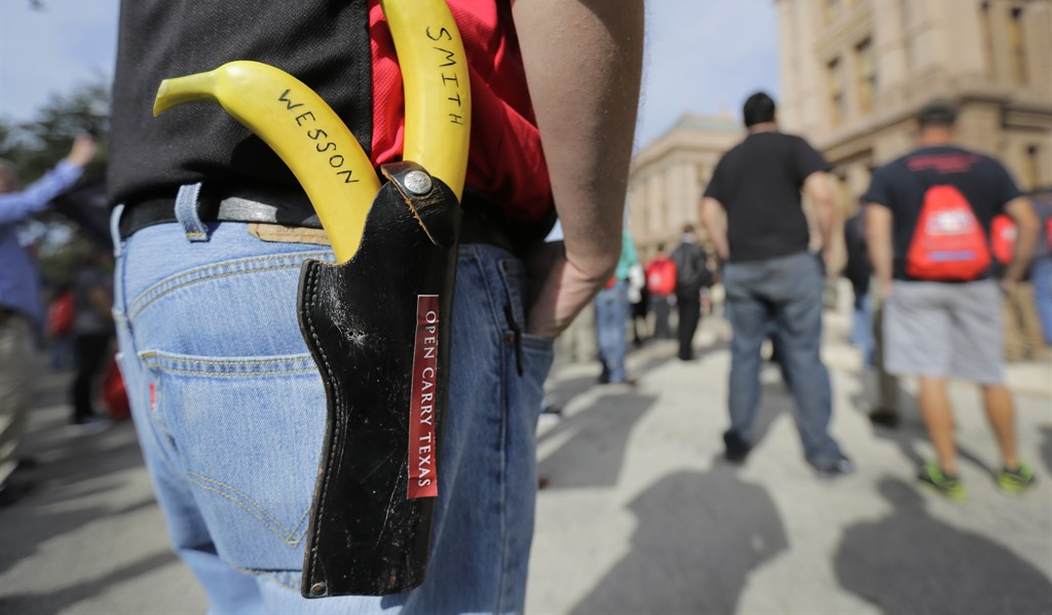Give Kaiser Health News a tiny smidge of credit for even acknowledging that the red flag laws in place in Colorado and Indiana didn’t prevent targeted attacks in recent weeks, even though the laws are often offered up as a way to stop mass murderers before they begin their rampage. Kaiser Health News is generally a reliable ally of gun control organizations, but a new story from the outfit isn’t likely to garner a lot of praise from the likes of Michael Bloomberg.
KHN would never go so far as to call for the repeal of any red flag laws. Still, they do point out that the evidence that the laws are effective in any way are “mixed” at best.
Mass shootings may grab the most attention, but they are too rare to measure whether red flag laws help prevent them, said Rosanna Smart, an economist who studies gun violence at the Rand Corp.
The suspect arrested and charged with murder and attempted murder in the Boulder shooting had a history of violent outbursts dating back three years or longer, so it is hard to assess, while facts of the case are still being gathered, whether the red flag law could have been applied to him.
In 2018 the man pleaded guilty to third-degree assault after punching a fellow student at his suburban Denver high school in an attack the victim called unprovoked. He also was kicked off the school’s wrestling team after making threats of violence.
Police seized a shotgun from the Indianapolis shooting suspect after his mother reported in 2020 that she was worried her son, then 18, was considering “suicide by cop,” or deliberately provoking a lethal response by officers. An Indiana prosecutor told The Associated Press that authorities did not seek a hearing under the red flag law because they worried they would have to return the shotgun to him if they lost in court.
Actually, it’s not too early to know whether the red flag law could have been applied to the suspect in Colorado. The law can be applied to anyone, but apparently no law enforcement agency or family member ever tried to initiate a red flag gun confiscation.
We also know that the DA in Marion County, Indiana didn’t pursue a red flag order because if he’d lost the hearing, he would have had to give back the gun that police had already seized from the then-18 year old. In other words, as bad as the lack of due process is under the state’s red flag law, there’s even less due process outside of the umbrella of the law, which is another problem entirely.
According to Rand’s Rosanna Smart, there’s really no evidence that red flag laws are effective at reducing either suicides or homicides. So why are they so popular among politicians, including some Republicans?
It’s simple, really. They allow politicians to claim they’re doing something, even if the something that they’re doing won’t make a difference. It’s far easier for a state legislature to implement a red flag law than it is to build and staff hundreds of new inpatient psychiatric beds, both in terms of the financial and political costs. Instead of actually treating people deemed to be a danger to themselves or others, we’ll maybe take their guns away and leave them to be dangerous with knives, or their car, or bombs.
I wish I could say that Kaiser Health News understands the fundamental flaws with red flag laws, but nope. They conclude their report with a glowing recommendation for red flag laws from Sheriff Tony Spurlock in Colorado, who believes that the state’s law “saves lives and it’s not harming anyone.” Spurlock has plenty of fellow sheriffs who disagree, and I’m inclined to side with them. I don’t believe that red flag laws are a nefarious way to disarm huge swaths of the population. I think many of the people who push them and promote them have good intentions, and see a temporary loss of rights as less invasive than a permanent loss of rights that comes with a formal adjudication of mental illness.
I still view red flag laws as an erosion of civil liberties as well as something that takes us further away from addressing the real issue; the individual who’s a danger to themselves or others, not the things they own.









Join the conversation as a VIP Member